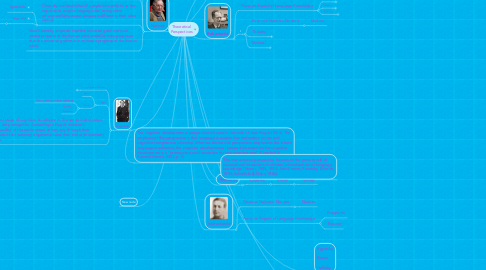Theoretical Perspectives
by Monica Cray Mobley

1. Nativist
1.1. Focus on Nature v. Nurture
1.1.1. Nature
1.2. Focus on Aspect of Language Knowledge
1.3. Chomsky contends that all people inherently have the capacity to acquire language due to cognitive structures that process language differently from other stimuli
1.3.1. Syntactic
1.3.2. Theorist
1.3.2.1. Chomsky
1.4. New Chomsky proposes that this universal grammar is an innate property of the human mind.nodeChomsky proposes that this universal grammar is an innate property of the human mind.
2. Interactionist
2.1. Focus on Nature v. Nurture
2.1.1. Nurture
2.2. Focus on Aspect of Language Knowledge
2.2.1. Pragmatic
2.2.2. Theorist
3. Behaviorist
3.1. Focus on Aspect of Language Knowledge
3.1.1. Semantic
3.1.1.1. Mother tongue
3.1.2. Syntactic
3.1.2.1. Excellent
3.1.3. Morphemic
3.1.3.1. Good
3.2. IT
3.2.1. Focus on Nature v. Nurture
3.2.1.1. Nurture
3.2.2. Theorist
3.2.2.1. Windows
3.2.2.2. Mac
3.2.3. Skinner
3.2.3.1. HTML
3.2.3.2. CSS
3.2.3.3. Javascipt
4. Cognitive
4.1. Focus on Nature v. Nurture
4.1.1. Company 3 (Location)
4.1.2. Internal Communications Manager
4.1.2.1. Setting up an intranet for the business unit
4.1.2.2. Communication Management
4.1.2.3. Publishing monthly newsletters
4.2. Piaget
4.2.1. Nature
4.2.2. Theorist
4.2.2.1. Focus on Aspect of Language Knowledge
4.2.2.2. Semantic Morphemic
4.3. In the first stage of cognitive development, the sensorimotor stage, children are prelinguistic. According to Piaget, children's understanding of the environment comes only through their immediate direct (sensory) experiences and their motor (movement) activities
5. New node
6. Theorist(s)
6.1. Vygotsky
6.1.1. Bruner
6.1.1.1. Halliday
7. The nativist perspective emphasizes inborn or innate human capabilities (i.e., “nature”) as being responsible for language development. Linguist Noam Chomsky is the major theorist associated with the nativist perspective.
7.1. New node
8. The behaviorist perspective emphasizes the role of “nurture” and considers learning to occur based on the stimuli, responses, and reinforcements that occur in the environment. A child is considered to be a “blank slate” (Karmiloff & Karmiloff-Smith, 2001), and learning occurs due to associations established between stimuli, responses, and events that occur after the response behavior.
8.1. New node
9. The interactionist perspective focuses on the primary role of sociocultural interaction in children's development of language knowledge (Bruner, 1983, 1990; John-Steiner, Panofsky, & Smith, 1994; Schieffelin & Ochs, 1986).
10. The cognitive developmental perspective is based in the work of Jean Piaget (1955). The emphasis of this perspective is that language is acquired as maturation occurs and cognitive competencies develop. Whereas the nativist perspective emphasizes the inborn language mechanism, the cognitive developmental perspective assumes that cognitive development is a “prerequisite and foundation for language learning” (Karmiloff & Karmiloff-Smith, 2001, p. 5).
11. The interactionist perspective focuses on the primary role of sociocultural interaction in children's development of language knowledge (Bruner, 1983, 1990; John-Steiner, Panofsky, & Smith, 1994; Schieffelin & Ochs, 1986). This perspective contends that children acquire language through their attempts to communicate with the world around them. This perspective contributes to our understanding of the ways in which children acquire pragmatic language knowledge.
12. Vygotsky Bruner Halliday


